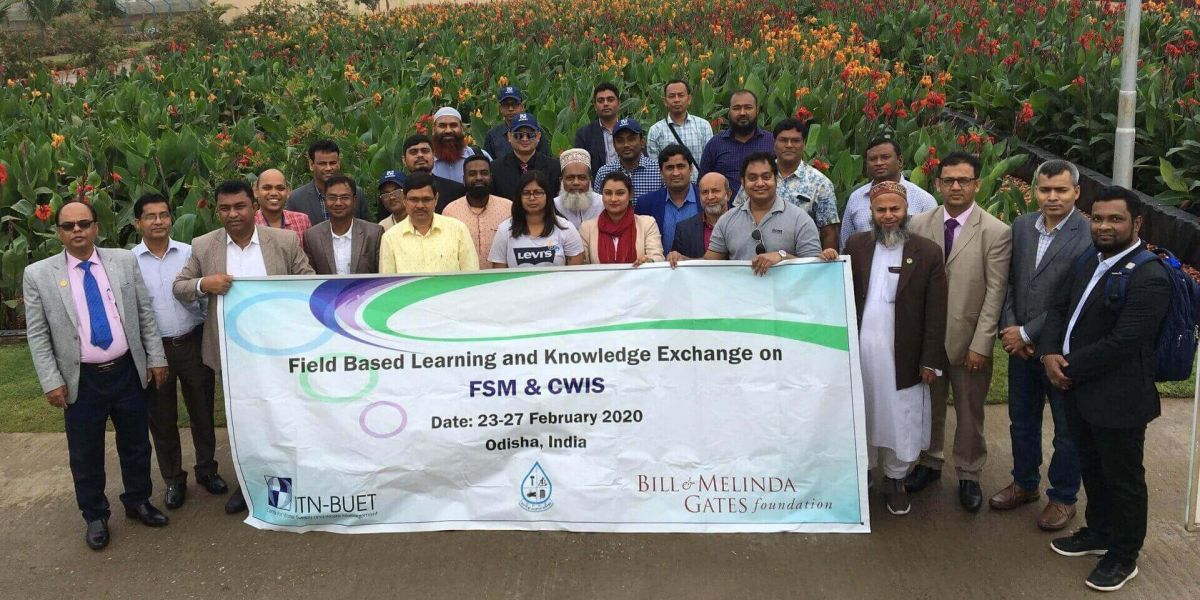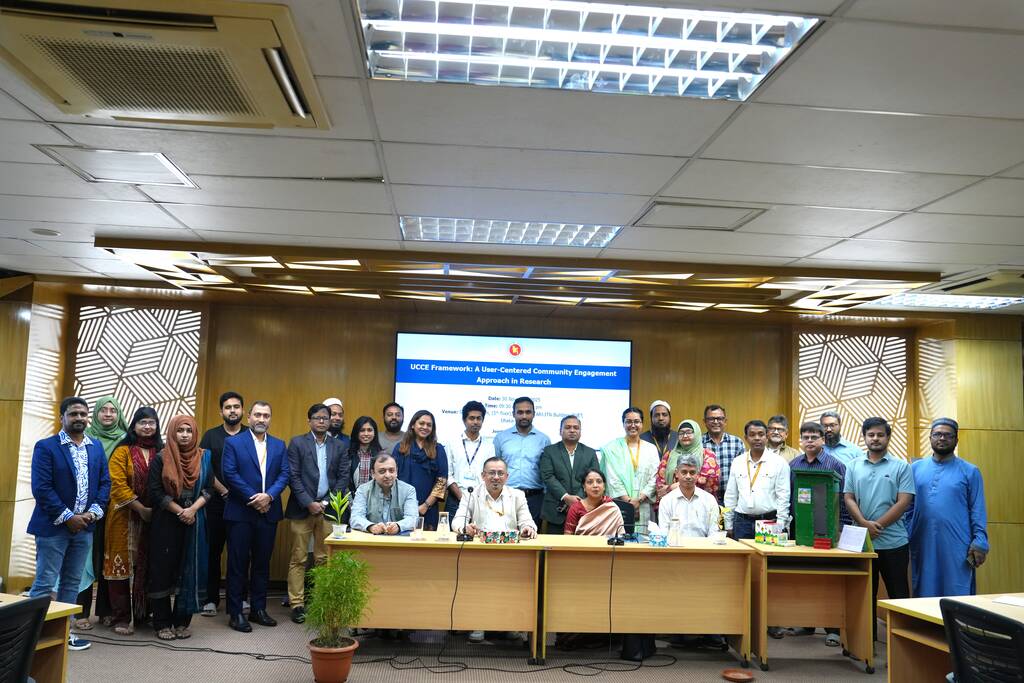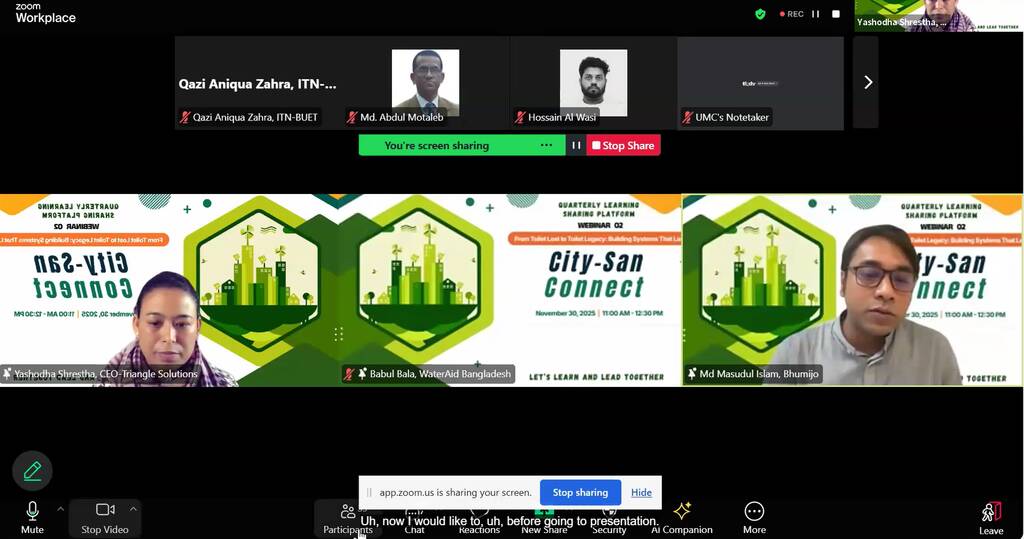ITN-BUET and Department of Public Health Engineering (DPHE) jointly organized the second exposure visit in Odisha, India, from 23 to 27 February 2020 to learn about their experience in managing fecal sludge management and citywide inclusive sanitation system in different cities. Orissa Water Supply and Sewerage Board (OWSSB) hosted the visit to Odisha with facilitation support from Ernst & Young (EY), FSM technical partner of OWSSB. A total of 26 delegates from Bangladesh included 8 DPHE, 15 Paurashava and 3 ITN-BUET officials in the exposure visit.

The participants met authorities and stakeholders in Dhenkanal, Bhubaneswar and Puri to learn about FSM implementation process, related programs/activities and challenges. The visit also helped create a platform where the participants could regularly communicate with each other for knowledge sharing and problem-solving within and among Paurashavas.
The visits in three cities of Odisha helped the participants learn about treatment technology, financial and administrative management, governance mechanism, operation and maintenance of the treatment plants, social inclusion and awareness-raising. Participants visited three Fecal Sludge Treatment Plants to learn about treatment technologies and operation & maintenance (O&M) of the plants. They attended meetings with relevant authorities at the Plants to learn from their practical experience and challenges they face to operate and maintain the plants.
The meeting with Orissa Water Supply and Sewerage Board (OWSSB) was particularly helpful in understanding how the government engages with different stakeholders to ensure citywide FSM service. The Member Secretary of the OWSSB explained the role of government in ensuring FSM in the Odisha state. The meeting with municipal authority in Dhenkanal made the participants realize that FSM is not only about implementing sludge treatment technology in the city but also beyond that where the community’s involvement ensures the sustainability of the system.
Participants reflected their learnings after the visits. They considered the FSM approach in their context and assessed the attainable. Participants shared that land scarcity and lack of stakeholder engagement are the major challenges for ensuring proper FSM in Bangladesh. The technical approach and treatment technologies at FSTPs must consider local context, including O&M after construction. Capacity building of direct stakeholders is essential for Paurashavas to ensure regular and quality services for sludge collection, disposal and end-use. The participants suggested that strong leadership from political leaders and budget/project support from the national level will leverage the FSM system in initial years. Positive behavior towards FSM among general people is the key to make FSM sustainable in Bangladesh.





